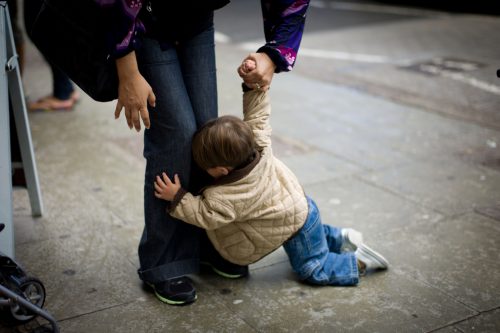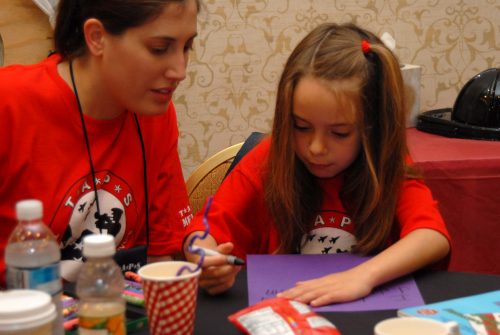What do mom and dad do when children show anger? Are they contributing to positive behavior, or are they showing love and care with the wrong management?
Advising Expectant Folks – Your Kids Are Not Perfect!
New expectant dads and moms tend to believe and identify that their baby son or daughter will grow up as the closest thing to perfection.
He or she won’t develop strong emotions and respond thoughtfully when hungry or upset. Potty training and teaching life lessons won’t make them feel frustrated. Notice how other kids will flock around him or her too because of their calm, fun, and helpful act and behavior.

The reality that no one can ever be “perfect” only sets in once the child comes into the world, and many parents understand how you can’t talk calmly to feisty and temperamental kids without losing a grip. They can shed big, fat tears if their parents don’t give them what they’re asking for instantly. The child’s behavior may worsen and show angry responses during mealtime when the dad or mom serves food they don’t want to try.
Tantrums – Our Children’s Worst
Worse, young children never pick a time or place to lose patience; that’s why folks might often feel angry and see themselves struggling to manage anger towards an upset kid at a shop, restaurant, or playground. Meri Wallace, LCSW, said that children express anger as “your child’s form of protest. Whenever you interfere with her desire to have something, do something or go where she wants to go, she gets mad.”
Handling The Situation With The Help Of Counseling
While it is understandably frustrating to hold back and handle anger management for parents in this kind of frustrating situation often, we can’t keep the child physically detained in the house. Understandably, they do it because they are busy with household chores and a lot of work.
However, when raising children, parents should let them have physical activity to build connections outside and learn from others too to avoid constant trouble and worry. Hence, they need to use a few counseling tricks to pacify temperamental kids in public.
A mental health session does help in so many constructive ways to stay calm for positive parenting so you don’t have to worry about your kid’s mental health on tough love. Mental health professionals can provide you with some parenting tips on how to manage your anger. Walk yourself through the signs of misbehavior with the help of the treatment.

Tips And Guidelines
- Don’t Ignore How They Feel – Anger Is A Valid Emotion Even For A Child
This further adds stress for the already frustrated moms and dads.
Kids start feeling angry when they sense that a parent is only half-listening to what they say. In their mind, the deal was, “Ah, you’re ignoring me because I’m a child? I’ll show you how childish I can be.” “Sometimes kids [show physical violence] because they feel that’s the only way they’ll be heard by the parent. Try to step in earlier as a parent—when frustration begins but before misbehavior occurs.” Eileen Kennedy-Moore Ph.D. explains. That is usually when the emotional pain gets bigger, and even when parents try to offer what they initially want, they’ll explode and push it away since they feel angry.
The trick for managing anger in children is to validate their emotions immediately. Parents should never use verbal abuse or assume that their children are overreacting and just feeling angry since they might have underlying emotions about something. In case parenting doesn’t agree with their dilemma, they may still provide validation when they talk about feelings and self-esteem and teach control.
2. Move To A Quiet Space
Parents shouldn’t expect a frustrated kid who has a tough time managing anger to respond when asked what angered him or her at that moment. No, when raising children, they have to control their patience and stay positive until they no longer feel angry.
What may speed up this process is carrying or pulling your child away from the scene and bringing him or her to a quiet spot. “Move your child to a more private place,” says Laura Markham Ph.D. She adds “Maybe you can go to your car, or to an out-of-the-way spot at the mall where you won’t be disturbing other people. Just as important, you won’t be tempted to parent as onlookers think you should, so you can follow your own parenting instincts.”
E.g., a room on the far end of the school building, or even inside the car. Take them to the bathroom and allow them to have a warm shower. It effectively shields the angry body from the thing that triggered his or her negative thoughts. Furthermore, he or she won’t be too shy to speak and start talking about the real many reasons he/she couldn’t handle anger as there’s no one else around to make them feel stressed.
- Choose Your Battles
Finally, if no amount of words can help children solve problems or stay sane, research shows parents should be a good example and leave the place. That way, both cannot exhaust and hurt each other. Avoid hitting them, yelling at them, breathing heavily into their faces, or throwing tantrums as well. Parents have to accept that there are hurtful things involving children that they can’t always win. Sometimes they’ll listen and talk to their parents and treat them as friends, but they still feel angry other times and do not see its negative effects in life.
The thing is, children feel angry for a bit — emotions will subside after a while if you let children be. Then, you may return to the public area once your child can control their temper and emotions. Putting your sanity first is the main goal and focus here.

Doing all the counseling and discipline ideas mentioned above is beneficial not just for you, but for your temperamental kid as well. Imagine, you can realize their feelings and emotions. In return, he or she will lose his temper, yell and talk since they know you consider their frustration as real and not some child’s play.
There will be a day when they’ll take deep breaths and manage their angry moment themselves in a slow manner. Until then, however, continue being a friend and stick to a helpful routine whenever your son or daughter shows uncontrolled anger.
Remember that your past parenting styles will not affect your present ones. But, in case you need help in a future relationship, seek a professional’s advice regarding your kid’s intended behavior problems.
Frequently Asked Questions
What happens when you scold your child?
How do I stay calm with my child?
What are the home remedies for uncontrolled anger?
What’s the most psychologically damaging thing a parent can say to a child?
What are the signs of toxic parenting?
Am I damaging my child by yelling?
How do you discipline without yelling?
What are the five anger management techniques?
How can I reduce parental stress?
How do you manage parental anger?
How does a parent’s anger affect a child?
Can anger issues come from parents?
Why do I get so angry at my child?
